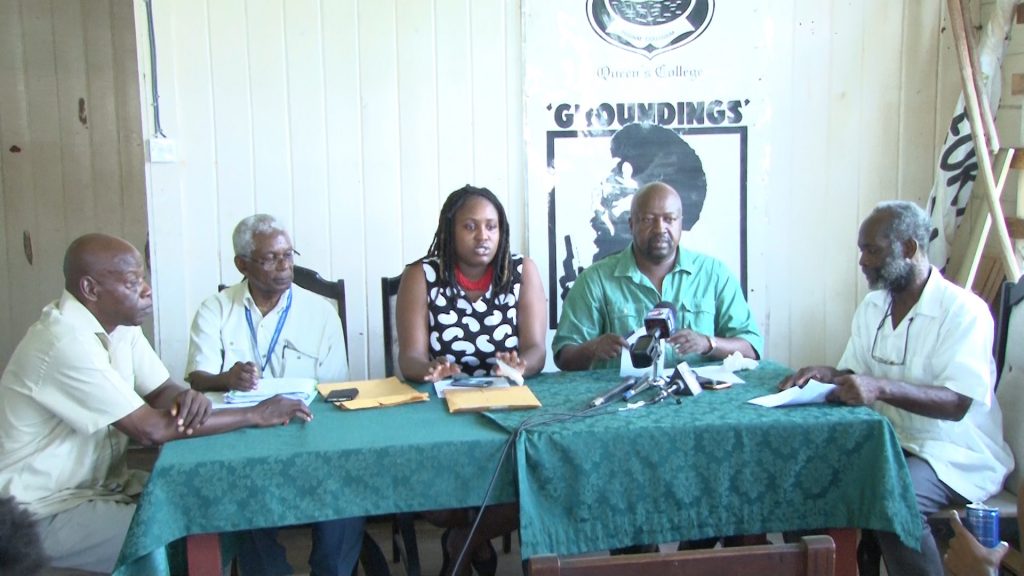President sees no evidence for handouts of oil money
By Devina Samaroo
President David Granger Thursday said no evidence has been presented to him for direct cash transfers of oil revenues to poor people, but Coalition partner WPA maintains that it will fight for such an initiative.
“…we will be steadfast and make no compromise on this matter because this matter transcends parties’ interest,” Tacuma Ogunseye, Executive Member of the WPA declared at a news conference at the WPA’s New Garden and Anira Streets Head Office Thursday.
“…on this political matter, the WPA will stand firm and live with the consequences of that,” he added.
Dr Clive Thomas, an economist and WPA Member, has proposed that each “poor” household receive US$5000 (G$1 million) of the oil revenues on a yearly basis.
“I don’t know the evidential basis for making such a proposal and it is not part of the proposal for the Sovereign Wealth Fund (SWF),” the President said on the sidelines of an event at his State House, Georgetown residence.
Granger is the leader of the PNCR, the largest party in APNU – the five-party coalition which teamed up with the AFC to contest and win the 2015 general and regional elections.
The President said he has a quintet of Ministers as well as the newly appointed Director of the Department of Energy, Dr Mark Bynoe, to advise him on issues relating to the oil and gas sector.
The idea of cash transfer has been welcomed by the AFC.
The WPA says it has not been engaged on matters regarding the oil and gas sector.
“Although WPA is a member of the Governing coalition and have within our ranks persons with known expertise on the economics of oil and gas, we have never been consulted or briefed on the negotiations and other official deliberations on the matter,” WPA’s Chairperson Tabitha Sarabo-Haley claimed.

Dr Thomas, who has been writing a lot about the industry, says he was not approached by any Government Minister about his ideas for developing the sector.
According to Ogunseye, “there is no adequate forum for pre-consultation before government decisions [are made] and most of those decisions are made and executed by the Cabinet and political parties that constitute the APNU don’t play any significant role in making those decisions.”
Nonetheless, the WPA says “through the people”, it hopes to get its message across to the Government.
There have been mixed reviews about the idea of direct cash transfers to poor people.
Former Attorney General Anil Nandlall is on record saying that “policies of this nature develop a degree of dependency that destroys the human initiative.”
“It destroys families, it destroys communities. It creates not only a sense of dependency but it creates parasitism. It makes the human being into a parasite, dependent only on the largess that will come from the State,” he stated.
But the WPA contended that cash transfers can be done hand-in-hand with other developmental initiatives such as investing in education, infrastructure and healthcare.
“I don’t think the public has actually grasped the kind of wealth we will be coming into once the oil starts to flow and the money starts to flow behind that oil,” the WPA Chairwoman said.
The Party accepted that there will be risks involved in a “cash handout” scheme but it strongly believes that the yearly initiative will make significant strides in eradicating poverty in Guyana.
The WPA Chair asserted that it makes no sense to invest in good schools and better healthcare when the poor people still cannot afford to benefit from those services.
She believes that having actual cash in hand will empower families to come out of poverty.
ExxonMobil, which is preparing to draw first oil in two years, has increased its estimate for Guyana’s Stabroek Block to four billion barrels of oil.







